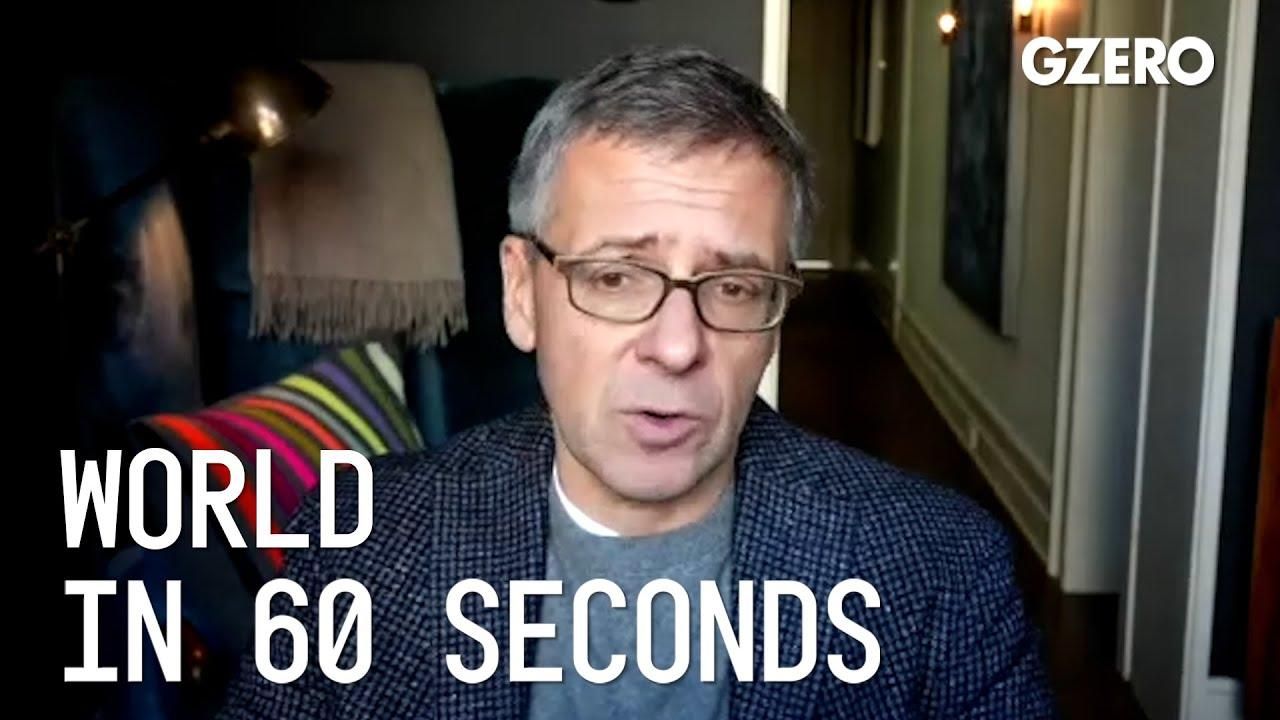Ian Bremmer shares his insights on global politics this week on World In :60.
Iran has announced it will enrich more uranium. Is the nuclear deal dead?
Yeah, it is pretty dead at this point. It is inconceivable to me that the Americans or allies would be prepared to cut a nuclear deal for an Iranian regime that is under this much domestic pressure and repressing its civilian population to this degree. Not to mention the fact that there's been attacks into Kurdish territories in Iraq over the last several days. There's been enormous amounts of state police repression with lots of instability. It's only growing, frankly. I can't imagine a nuclear deal getting cut here.
And that leads to the question of what the Israelis are going to do in response? What the Americans are going to do? What the Gulf States going to do in response? Because of course, none of these countries want the Iranians to go nuclear. There're nuclear breakout capabilities if they want to go that direction is a matter of weeks. So it's something we're going to watch carefully.
India now takes over as G-20 chair. What are the risks and opportunities for Modi?
Well, I mean, kind of like the Indonesians, it is an opportunity to showcase a country that's doing fairly well. And both Indonesia and India are. India in particular, investing an enormous amount of money in digital infrastructure after having not invested for decades in conventional infrastructure. I think showing off India's growth, India's demographics, India's technology, and India's willingness to play a greater leadership role on the global stage, all something Modi wants to do, and also from the perspective of a pretty strong and politically stable government with about 70% approval ratings across the country right now. There are very few leaders and governments in the position that Modi and India are in right now. That makes it a great time for them to be hosting the G-20.
Will MBS pump more oil after the Saudis shocked Argentina in the World Cup?
No. If anything, they're probably going to reduce because prices have been still on the downside over the course of the last several weeks, even though OPEC took a million barrels off their total production. And that is because of concerns of global recession, Chinese economy under producing, not as much demand. That's still where we are as we look into 2023. The bigger question is whether the Argentines or the Iranians have a tougher reception at home. The Iranians, of course, very, very brave, courageous in refusing to sing the national anthem given what's happening on the ground in Iran. The Argentines had no problem singing the national anthem. They just had a problem performing against the Saudis. And I mean, this is a country that really... they don't do many things well on the global stage, but football is right up there, and they just got crushed by the Saudis two to one. Oof. Not fun if you're in Buenos Aires right now.
- Is the Iran nuclear deal dead – again? ›
- The hedge edge: India’s savvy but selfish non-aligned diplomacy ›
- Will politics or soccer win Qatar's World Cup? ›
- Iran v. the Islamic Republic: Fighting Iran’s gender apartheid regime - GZERO Media ›
- Rogue states gone nuclear and the watchdog working to avert disaster - GZERO Media ›
More For You
Who decides how much control a country should have over its technology? Speaking at the 2026 World Economic Forum in Davos, former UK Prime Minister Rishi Sunak discussed the balance between national sovereignty and global interdependence.
Most Popular
Think you know what's going on around the world? Here's your chance to prove it.
AI is advancing quickly, but access and control remain deeply uneven. As artificial intelligence becomes foundational to economies and governments, the question is no longer just who has the best technology, but who controls the systems that power it. In this GZERO Media Global Stage interview from the 2026 World Economic Forum in Davos, Tony Maciulis speaks with Talal Al Kaissi, Group Chief Global Affairs Officer at G42, about why AI has intensified debates around digital sovereignty, and what it will take to close the global AI divide.
